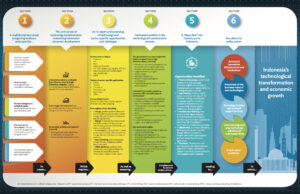Reports and articles
Innovate Indonesia: Unlocking growth through technological transformation
Published on March 30th 2020
Michele Palladino, Carlos López-Gómez, David Leal-Ayala, and Jennifer Castaneda of the Policy Links Unit supported the drafting of this study. They drew upon the expertise of more than 15 experts across the IfM, the Department of Engineering and the University of Cambridge. This study was published by the Asian Development Bank and distributed under a Creative Commons 3.0 IGO Licence.
Related resources
Get in touch to find out more about working with us





